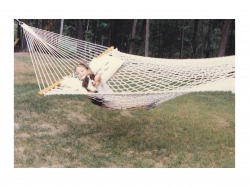“Scratch a dog and you'll find a permanent job.” ~Franklin P. Jones
We can all smile at the truth behind this quote. Taking care of animals can truly be a labor of love. Today, however, I want to share how my dogs actually paved the way for my career path. As some of you know, I graduated the University of Virginia with a PhD in neuroscience. It sounds super impressive and I will admit that some of the things I do are really cool (yes, that’s the technical term for it!), but anyone who has animals can understand the basic principles I work with day in and day out. Discovered by Ivan Pavlov in the early 1900’s, animals are motivated by food. In fact, they can make associations between anything novel (and not inherently motivating) and a food reward. Termed, classical conditioning, this is what every dog owner / trainer uses to teach their dogs. Growing up with animals and a mother who had been training dogs since she herself was a little girl, I took for granted how easy it was to use reward to get my puppy to “sit” or “down” on command. In fact, with a little encouragement from my mother, I came up with my first middle school science fair project that did not involve plants and sunlight. She suggested that I use my “animal training talent” and do something with my guinea pig. We sat down and decided that I would use classical conditioning to train my guinea pig that a bell predicted a food reward. I did these bell-food pairings over multiple days till one day, after I rang the bell, the guinea pig starting making excited vocalizations termed “wheeking”. I presented the project at the fair and ended up with 2nd place!
Not to be outdone, I decided that next year for the science fair, I was going to use my hamster (if you’re trying to keep track of my childhood animals…it’s a LOT and includes rabbits and horses to the already long list.) With the help of my grandfather, I made two equally difficult mazes. I made it so that one maze always had a food reward at the end whereas the other maze never had food at the end. I then timed how long it took my hamster to run each maze every day for a week. Surprise, surprise, learning is accelerated when there is a food reward at the end of the maze.
Although I only placed 4th that year, I had started something that would eventually shape the rest of my life. You see, due to this early experience with dogs, guinea pigs and hamsters I decided to work in a behavioral lab as an undergraduate in college. Turns out, I’m really good and training rats. One thing led to another and I decided to major in psychology and pursue animal behavior. I soon realized that in order to understand behavior, you had to know what was going on in the brain. From there everything kind of snowballed. I took a technician job at Johns Hopkins University, applied and got in to graduate school at UVA, graduated in 5 years with my PhD and moved one week after graduation to North Carolina to start working as a Post Doctorial fellow at UNC-Chapel Hill. Each and every experiment I conducted along the way dealt with reward and either classical or operant (must perform a behavior to get the reward) conditioning.
Throughout my whole career I have always been successful. I mainly attribute my success to luck, but I can’t neglect the fact that I have a way with animals. I have spent my whole life (even prenatally) with animals. Because of this comfort level, animals tend to relax around me and trust in what I tell them to do. Even now, I am called the “rat whisperer” in lab because I can take a very scared and freaked out rat and calm him down within seconds. Although this kind of influence over animals can be learned, I feel that my success in gradschool and now as a postdoc is due to the fact that I was immersed in a world of dogs and the basic principles of learning my whole life. So I guess you could say that I owe all that I am and everything I have accomplished to my dogs and my mother (and stubborn persistence).
Happy Mother’s Day Mom! Thanks for always being there!
We can all smile at the truth behind this quote. Taking care of animals can truly be a labor of love. Today, however, I want to share how my dogs actually paved the way for my career path. As some of you know, I graduated the University of Virginia with a PhD in neuroscience. It sounds super impressive and I will admit that some of the things I do are really cool (yes, that’s the technical term for it!), but anyone who has animals can understand the basic principles I work with day in and day out. Discovered by Ivan Pavlov in the early 1900’s, animals are motivated by food. In fact, they can make associations between anything novel (and not inherently motivating) and a food reward. Termed, classical conditioning, this is what every dog owner / trainer uses to teach their dogs. Growing up with animals and a mother who had been training dogs since she herself was a little girl, I took for granted how easy it was to use reward to get my puppy to “sit” or “down” on command. In fact, with a little encouragement from my mother, I came up with my first middle school science fair project that did not involve plants and sunlight. She suggested that I use my “animal training talent” and do something with my guinea pig. We sat down and decided that I would use classical conditioning to train my guinea pig that a bell predicted a food reward. I did these bell-food pairings over multiple days till one day, after I rang the bell, the guinea pig starting making excited vocalizations termed “wheeking”. I presented the project at the fair and ended up with 2nd place!
Not to be outdone, I decided that next year for the science fair, I was going to use my hamster (if you’re trying to keep track of my childhood animals…it’s a LOT and includes rabbits and horses to the already long list.) With the help of my grandfather, I made two equally difficult mazes. I made it so that one maze always had a food reward at the end whereas the other maze never had food at the end. I then timed how long it took my hamster to run each maze every day for a week. Surprise, surprise, learning is accelerated when there is a food reward at the end of the maze.
Although I only placed 4th that year, I had started something that would eventually shape the rest of my life. You see, due to this early experience with dogs, guinea pigs and hamsters I decided to work in a behavioral lab as an undergraduate in college. Turns out, I’m really good and training rats. One thing led to another and I decided to major in psychology and pursue animal behavior. I soon realized that in order to understand behavior, you had to know what was going on in the brain. From there everything kind of snowballed. I took a technician job at Johns Hopkins University, applied and got in to graduate school at UVA, graduated in 5 years with my PhD and moved one week after graduation to North Carolina to start working as a Post Doctorial fellow at UNC-Chapel Hill. Each and every experiment I conducted along the way dealt with reward and either classical or operant (must perform a behavior to get the reward) conditioning.
Throughout my whole career I have always been successful. I mainly attribute my success to luck, but I can’t neglect the fact that I have a way with animals. I have spent my whole life (even prenatally) with animals. Because of this comfort level, animals tend to relax around me and trust in what I tell them to do. Even now, I am called the “rat whisperer” in lab because I can take a very scared and freaked out rat and calm him down within seconds. Although this kind of influence over animals can be learned, I feel that my success in gradschool and now as a postdoc is due to the fact that I was immersed in a world of dogs and the basic principles of learning my whole life. So I guess you could say that I owe all that I am and everything I have accomplished to my dogs and my mother (and stubborn persistence).
Happy Mother’s Day Mom! Thanks for always being there!


 RSS Feed
RSS Feed
